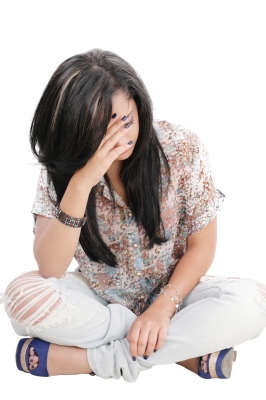Advocacy for the Rights of the Human Trafficked
|
Human Trafficking is one of the most horrific crimes committed in our society today. It is illegal and criminal. Human beings are being bought and sold, often repeatedly, for profit. Human trafficking places persons in slavery or in slave-like conditions against their will. It is the second, after arms trading, most lucritive ‘business’ in the world. But Trafficking is a grave offence against the dignity of the human person and a serious violation of human rights. Image courtesy of David Castillo Dominici / FreeDigitalPhotos.net Many events contribute to the widening gap between rich and poor people. Between and among these two groups are the traffickers and criminal gangs, who, in new and covert ways continue to control and move people from one country to another. But it is human beings who are moved, who have lost their dignity and respect, and are now used as commodities for financial gain, greed and personal pleasure. 1.2 million children are trafficked each year(UNICEF). At least 12.3 million are victims of forced labour. Of those trafficked accross international borders each year approx. 80% are women and girls and up to 50% are minors (www.stopthetraffik.org) The spread of trafficking is helped by developments in technology, the growth of major cities and the lifestyle in many developed countries. Mercy Sisters in the various congregations across the world are engaged at grassroots level with issues of trafficking. They link with national and global anti-trafficking networks. You may have read stories of Sisters active involvement which was documented in Mercy E-news and elsewhere on this microsite. But for the majority of us Mercy women in the world we may feel that “Trafficking has nothing to do with me. I do not see or meet the traffickers, or those forced to work in prostitution”. The sex industry, generally, is what comes to mind for most of us when talking about people trafficking. However,the International Labour Organisation estimates that for every trafficking victim subject to forced prostitution, nine people are forced to work in labour situations. Take chocolate, for example, thousands of children from CoteD’Voire (Ivory Coast) and neighbouring countries in West Africa, who pick and harvest the cocoa beans, have been trafficked. They are forced to work long hours in cocoa plantations with no freedon and no money for their work. Ten years ago many chocolate companies agreed that they would work on elimination of child and adult trafficking in the production of their chocolate goods. Little has happened. While some chocolate companies have begun to use cocoa that is independently certified as not being produced by a child or someone who has been trafficked or exploited, it is a first step. Much more action is needed to ensure no child or adult is trafficked or exploited to produce the chocolate we love to eat. In hidden ways we can be contributing to modern-day slavery. A new website, www.slaveryfootprint.org, enables one to to access one’s ‘slavery’ footprint by answering some simple questions about one’s everyday choices. And we may be in for a big surprise. As Trafficking is one of the two major themes that is the focus of Mercy International Global Action, some of us may ask ourselves, “But what can I do? I am so removed from the situation.” But we live in a global economy and there are goods and provisions from global markets and trading routes on our shelves. We can use our purchasing power and make a choice now on where our money goes. If we all did it there would be less trafficking in the world. But what can we do? Messages to: Catherine Gibbons rsm - MGA Intern |


